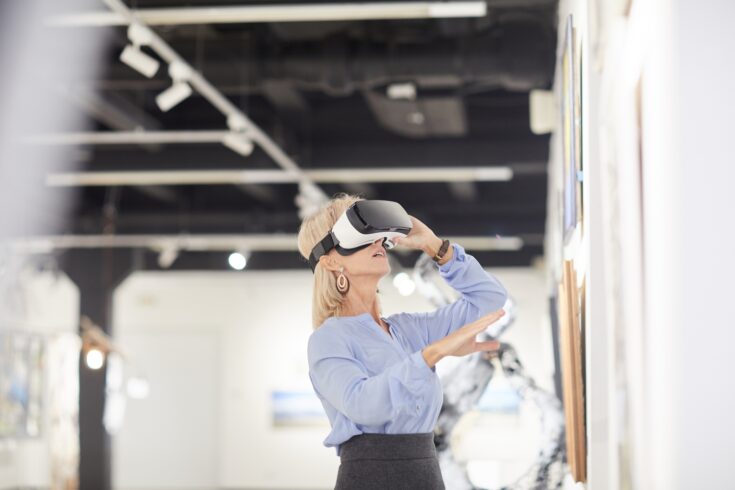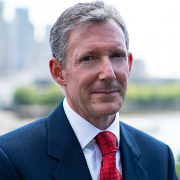German Wissenschaft is the systematic pursuit of knowledge, learning and scholarship, and can be applied to any field, as, it appears, can kagaku in Japanese or kēxué in Chinese.
It is a peculiarity of English that arts and humanities and science are often perceived as opposites. And anyone who uses the word science is assumed not to be including the humanities.
My own view has always been that a productive conception of science not only embraces arts and humanities, it is inconceivable without them. A unified project of developing and deepening knowledge for its own sake and for social and economic benefit should not only include arts and humanities, it cannot achieve its goals without us.
A circuit of innovation
The same is true of innovation.
One misconception is the idea that innovation is at the end of a stream that flows in one direction. Upstream is the pure water of research, downstream is the muddy but fertile silt of business.
Ottoline Leyser, CEO of UK Research and Innovation (UKRI), has spoken strongly against this. The system is far more interconnected already, and we need to make sure that we recognise that research and innovation are synergistic and frequently blended.
That’s why so much innovation actually happens in research councils, and quite a lot of research occurs in business. Rather than work as if there is a unidirectional push, we should have a system of sparks and flows and circuits. More agile lively neural network than a slow and predictable river.
Knowledge economy
But we have to make another leap.
Defining the outcome of this ecosystemic approach as a knowledge economy only gets us so far in a service and creative economy.
A knowledge economy has been characterised as ‘production and services based on knowledge intensive activities that contribute to an accelerate pace of technical and scientific advance, as well as rapid obsolescence’. Powell and Snellman, Annual Review of Sociology 2004 30:1, 199-220.
But then it is easy to be stuck with the idea of a knowledge economy that produces tangible monetisable benefit, and privileges the thing over the idea.
Reducing innovation to its output not its outcome, its product not its process, is exactly what gets us to replication with variation of our existing system, not the imagination of a new world.
Role of humanities in every grand challenge
The creation of UKRI signalled a challenge for the Arts and Humanities Research Council (AHRC) and all the other parts of UKRI to look across the scientific landscape. UKRI seeks synergies and encourage the effective funding of the inter and multidisciplinary research and development (R&D). R&D is needed to address many of the grand challenges facing the world both now and in the future.
Humanity is part of every grand challenge. From those that seek to address the problems we have caused to those that seek to raise our understanding of how to flourish as humans in balance with our world.
The very action of a reflective acknowledgement of the work we have to do in terms of challenges or sustainable development goals is an intellectual framing rooted in a set of ethical and cultural choices.
How to be good ancestors
The greatest challenge we face, the one that brings all others together, is how to be good ancestors; to leave a better planet and society. That places science squarely in the service of a historical and philosophical debate.
It is precisely for that reason that I begin this year reflecting on how AHRC is working across UKRI to humanise science. I am committed to argue consistently for the essential role of what we study, and how we study, for the delivery of better science and more legitimate notions of innovation.
Here are some examples of our work.
Working towards a sustainable future
In climate change, AHRC leads the way in describing ecological impact in human terms, influencing behaviour and imagining a net zero future:
- we are partnering on a collaboration, led by the Natural Environment Research Council (NERC), with Canadian research funders and Inuit Tapiriit Kanatami. The programme investigates environmental change in Inuit Nunangat, its impacts on Arctic indigenous communities, and mitigation possibilities
- we are working with NERC and the Economic and Social Research Council (ESRC) to design a community engagement programme for a proposed CO2 storage laboratory. Using collective memory, oral history and artistic practice, the programme will explore and imagine what a ‘net zero’ future looks like, and how energy futures are understood, imagined and communicated
- we are deeply embedded in cross-council work in creating a more circular fashion ecosystem leveraging skills, knowledge, collaboration and innovation.
Envisaging a future through creativity and design
Our portfolio ranges from regional clusters driving creativity across the UK, to large-scale technology driven infrastructure and cutting-edge AI:
- in collaboration with our partners, AHRC is leading a Fund for International Collaboration programme. It is focused on enhancing UK-China collaborations in the creative industries and funding projects on topics such as all-female opera, sustainable fashion, and virtual reality in museums
- AHRC’s digital research and innovation programme will unlock the potential for AHRC-led research to drive innovation in AI and digital twins. Collaboration with the Engineering and Physical Sciences Research Council (EPSRC) offers opportunities for world leading investments on creative industries and AI, virtual production, and ethical AI
- AHRC is working with the Design Museum and the Design Council to lead human centred design thinking within UKRI, with specific focus on designing a net zero future through our new Future Observatory.
Delivering future skills and better policy
- we are collaborating with the UKRI Innovation Scholars lead to offer an opportunity for secondments in architecture and design. It will enhance skills and careers, and increase porosity between academia and other sectors
- the Impact Accelerator Accounts offer strategic awards to research organisations allowing them to respond to impact opportunities in more flexible, responsive and creative ways
- AHRC worked with Innovate UK to develop the ground-breaking Design Exchange Partnerships pilot scheme, which runs parallel and complementary to similar pilot for the social sciences being led by ESRC
- we have also worked with ESRC to deliver four new policy fellowship opportunities with the Foreign and Commonwealth Development Office, focusing on non-proliferation, international trade law, disinformation, and foreign policy relevant to the Indo-Pacific region.
Science of the future
The science of the future should be responsible, equitable and sustainable. It should build future skills, places, and communities that regenerate our world. It needs to be truly innovative within a generous, balanced and future looking knowledge economy. To achieve these things, it needs arts and humanities at its core.
And AHRC will be right there.
Top image: Credit: SeventyFour, Getty Images




